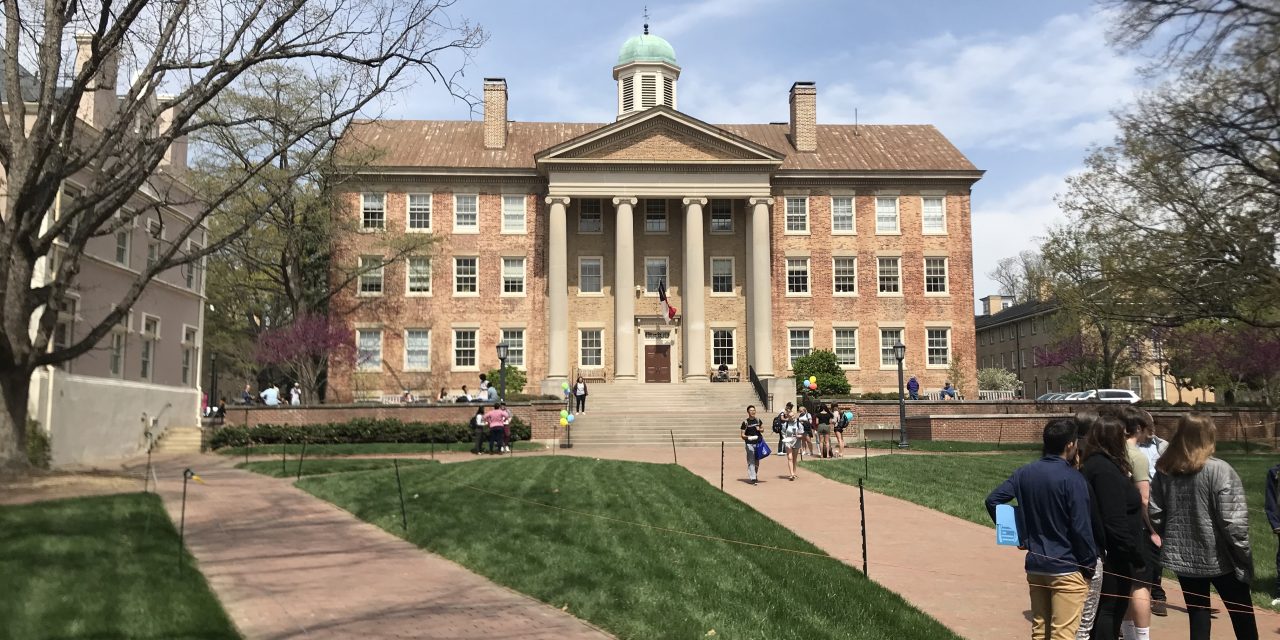A New York-based not-for-profit foundation has withdrawn a $1.5 million grant intended for UNC-Chapel Hill.
The Andrew W. Mellon Foundation said in a statement that it withdrew the grant when it learned of the deal between the UNC System Board of Governors and the Sons of Confederate Veterans.
The Mellon Foundation’s Friday statement said the foundation had been working with the school to develop a grant proposal supporting “a campus-wide educational reckoning focusing on historical truth-telling and confronting the University’s entanglements with slavery, Jim Crow segregation, and the memorialization of the Confederacy.
“Allocating university funding toward protecting a statue that glorifies the Confederacy, slavery, and white supremacy — whether from public or private sources — runs antithetical to who we are and what we believe as a foundation,” the statement said.
UNC-Chapel Hill spokeswoman Kate Luck didn’t respond to an email from the AP seeking reaction on Friday. Prior to the foundation’s decision, WRAL reported that Luck said Thursday that the university was “in conversations” with the Mellon Foundation over its concerns about the settlement, but that the university was “not aware of any awarded grants that have been rescinded regarding this issue.” Luck maintained that position in talking to the television station on Friday.
Last month, UNC announced that Silent Sam would be given to the Sons of Confederate Veterans, which would be banned from placing it in any of the 14 counties where UNC campuses are located. The statue was dedicated in 1913 to honor UNC alumni who fought for the Confederacy.
The agreement calls for university officials to put the $2.5 million in a private fund that would be used for expenses related to preserving the monument or potentially building a facility to house it. Officials have said no state money will be used for the fund.
The deal sparked multiple protests. Faculty members on the Chapel Hill campus condemned the agreement and protesters marched against it. The state attorney general’s office has distanced itself from the settlement as well.
Related Stories
‹

Collection of UNC Faculty Call for Chancellor Guskiewicz's Resignation Over Silent Sam SettlementUPDATE: This story has been updated with statements from UNC, which were issued to the campus community and sent to Chapelboro. A group of UNC faculty is calling for UNC Chancellor Kevin Guskiewicz’s resignation as more details emerge regarding the university’s involvement in the 2019 settlement over a Confederate monument previously on the Chapel Hill […]
![]()
Orange County Judge: SCV Have 45 Days to Return 'Silent Sam' to UNCA judge imposed a 45-day deadline on the Sons of Confederate Veterans to return the Silent Sam statue to the University of North Carolina. Orange County Superior Court Judge Allen Baddour also ruled that the group must return the remaining balance of a $2.5 million trust fund that the university’s board of governors set up […]
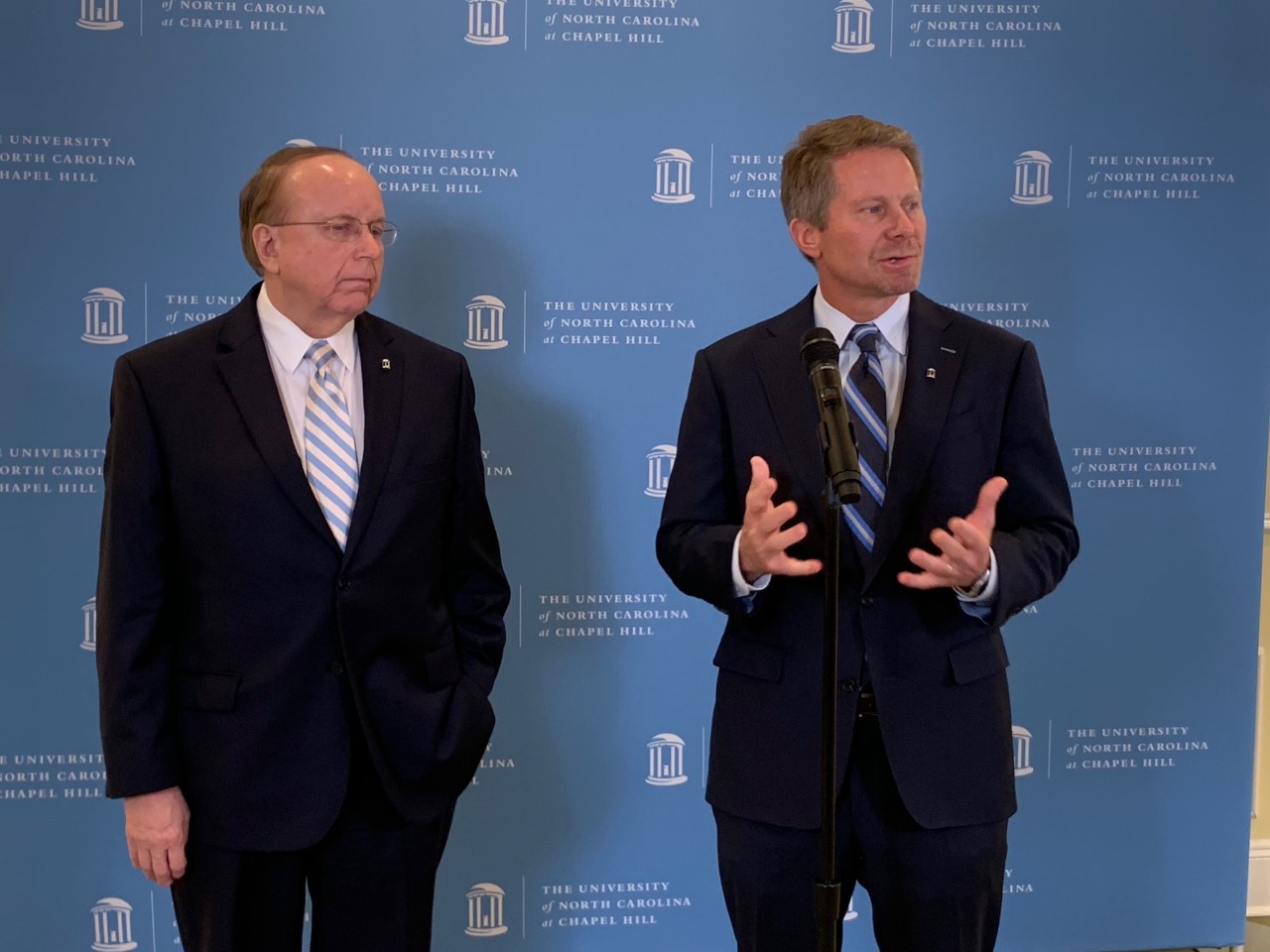
Guskiewicz Launches New Commission to Address UNC's History with RaceUNC Chancellor Kevin Guskiewicz announced the official launch of a new commission to address and contextualize the university’s history regarding slavery and race relations. In a release Wednesday night, Guskiewicz revealed the members of the Commission on History, Race and A Way Forward. Made to build upon the findings and feedback generated from former chancellor […]
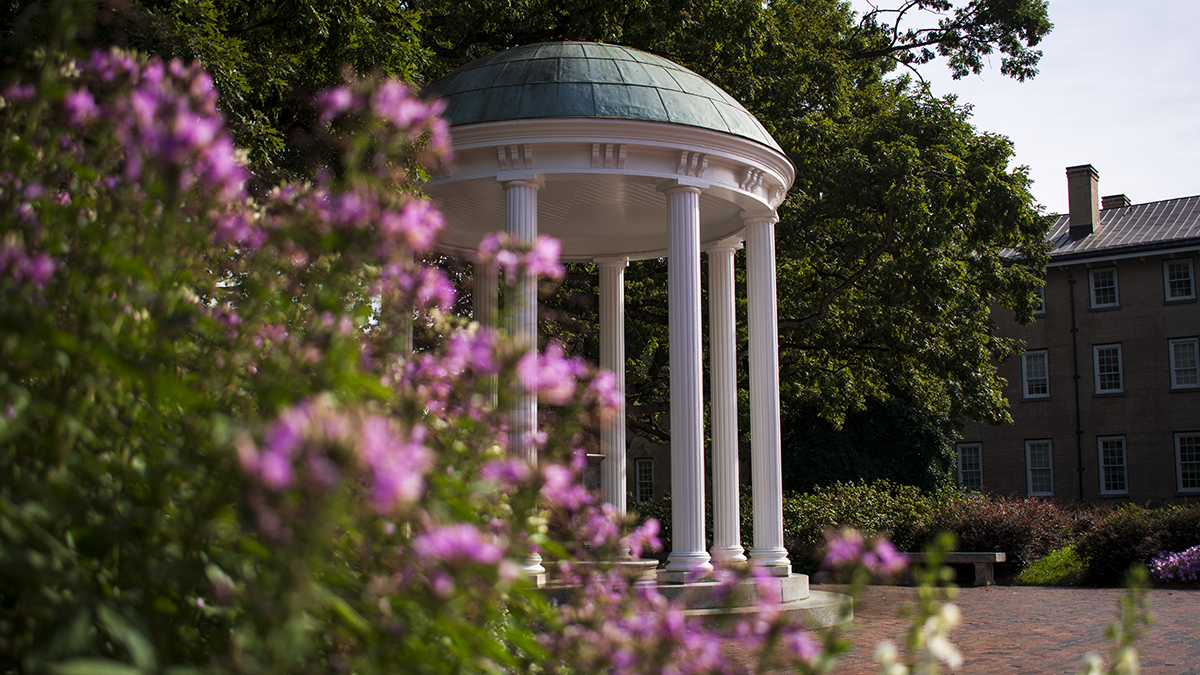
UNC History Professor: Silent Sam Settlement Affects How History is Told, Furthers DivideUNC faculty members continue to voice their displeasure with the UNC System’s decision to work with a pro-Confederate group over the future of the Confederate monument known as Silent Sam. Dr. William Sturkey, an assistant professor of history at UNC, wrote an op-ed article in the New York Times titled ‘Why Did U.N.C. Give Millions to […]
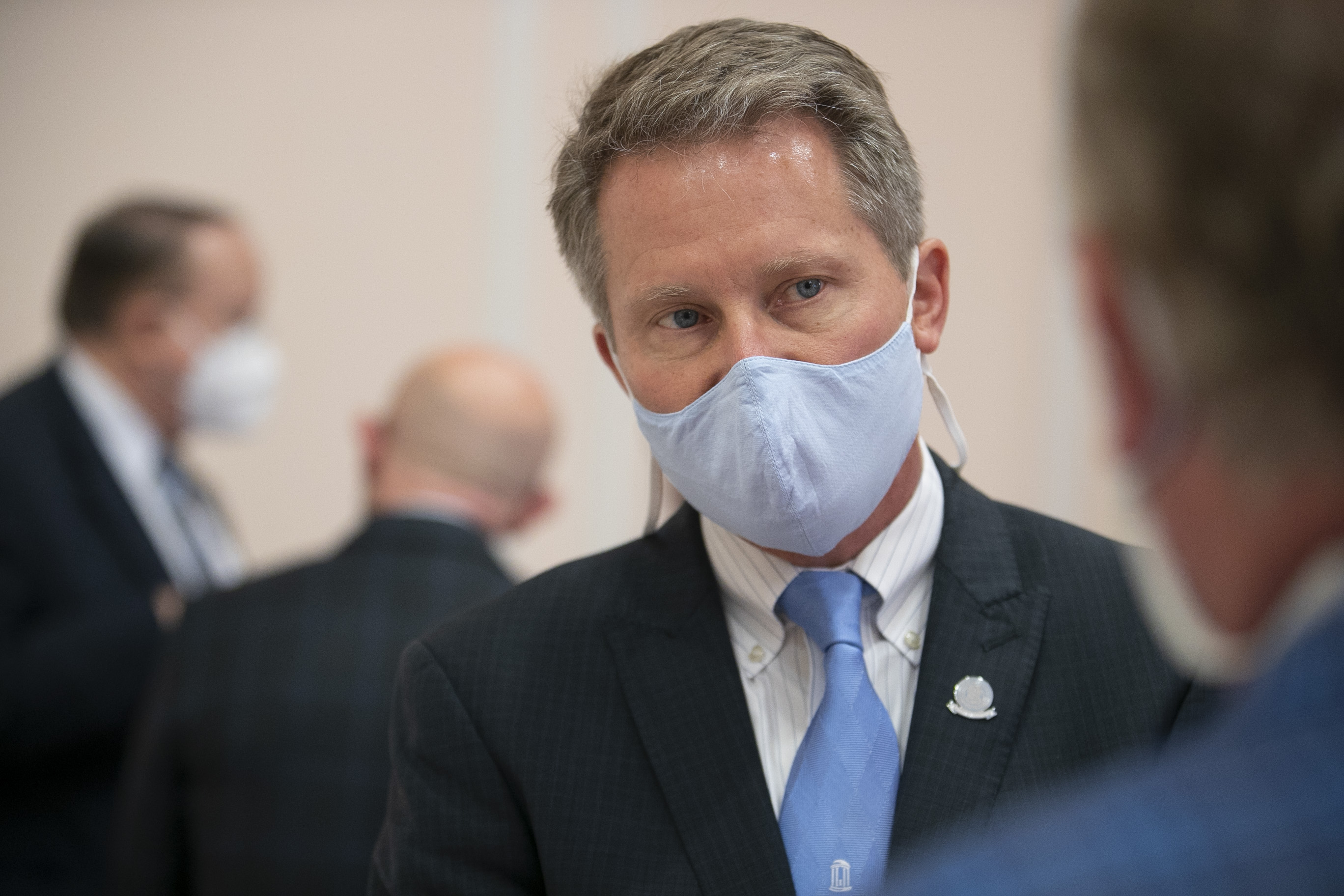
UNC Chancellor Clarifies University's Role in Silent Sam Settlement NegotiationsUNC Chancellor Kevin Guskiewicz shared a message with the campus community Thursday to clarify the university’s role in the 2019 negotiations that led to a settlement over the Confederate monument known as Silent Sam. Following new information revealed in a settlement between the UNC System and DTH Media Corp., a renewed interest in the Chapel […]
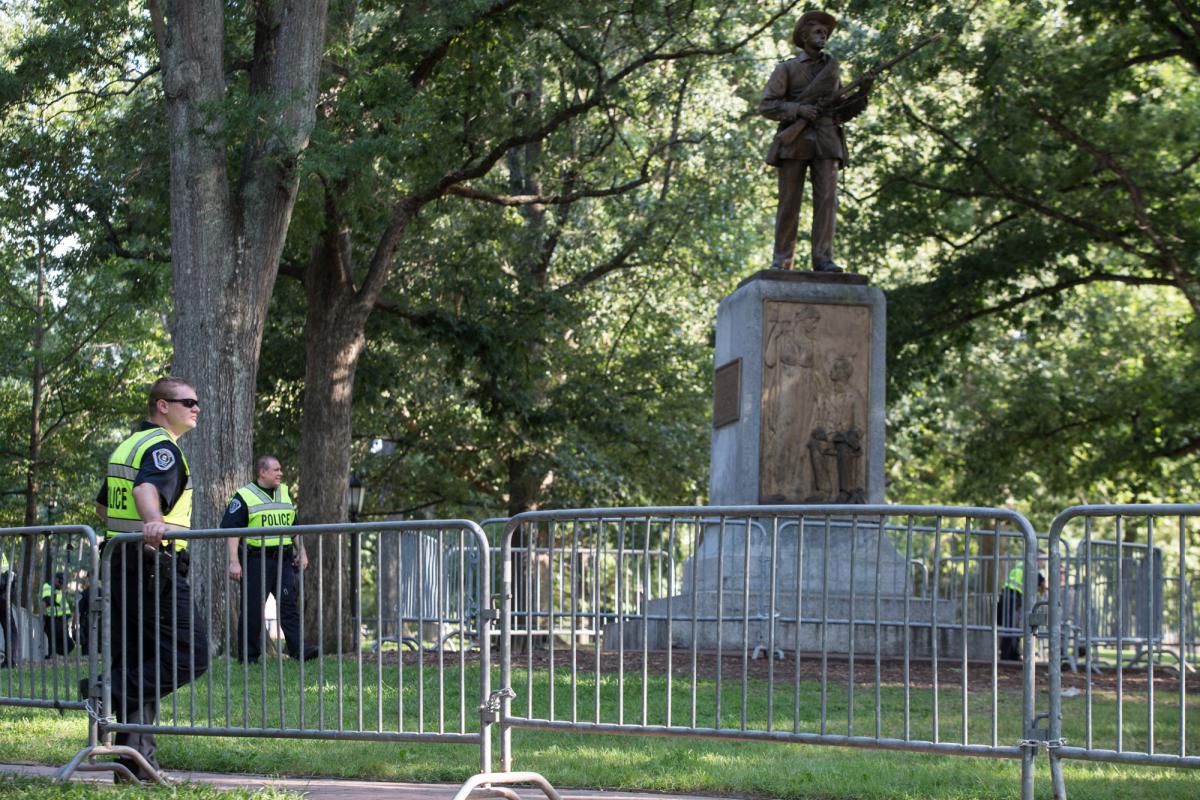
UNC System Settles Lawsuit With Daily Tar Heel Over Silent Sam SecrecyThe UNC System settled an ongoing lawsuit with the parent company of the Daily Tar Heel newspaper over potential open meeting law violations on Monday. The settlement, announced by the Daily Tar Heel, concludes a lawsuit filed in January 2020 by the DTH Media Corp. against the university system, its Board of Governors and individual […]
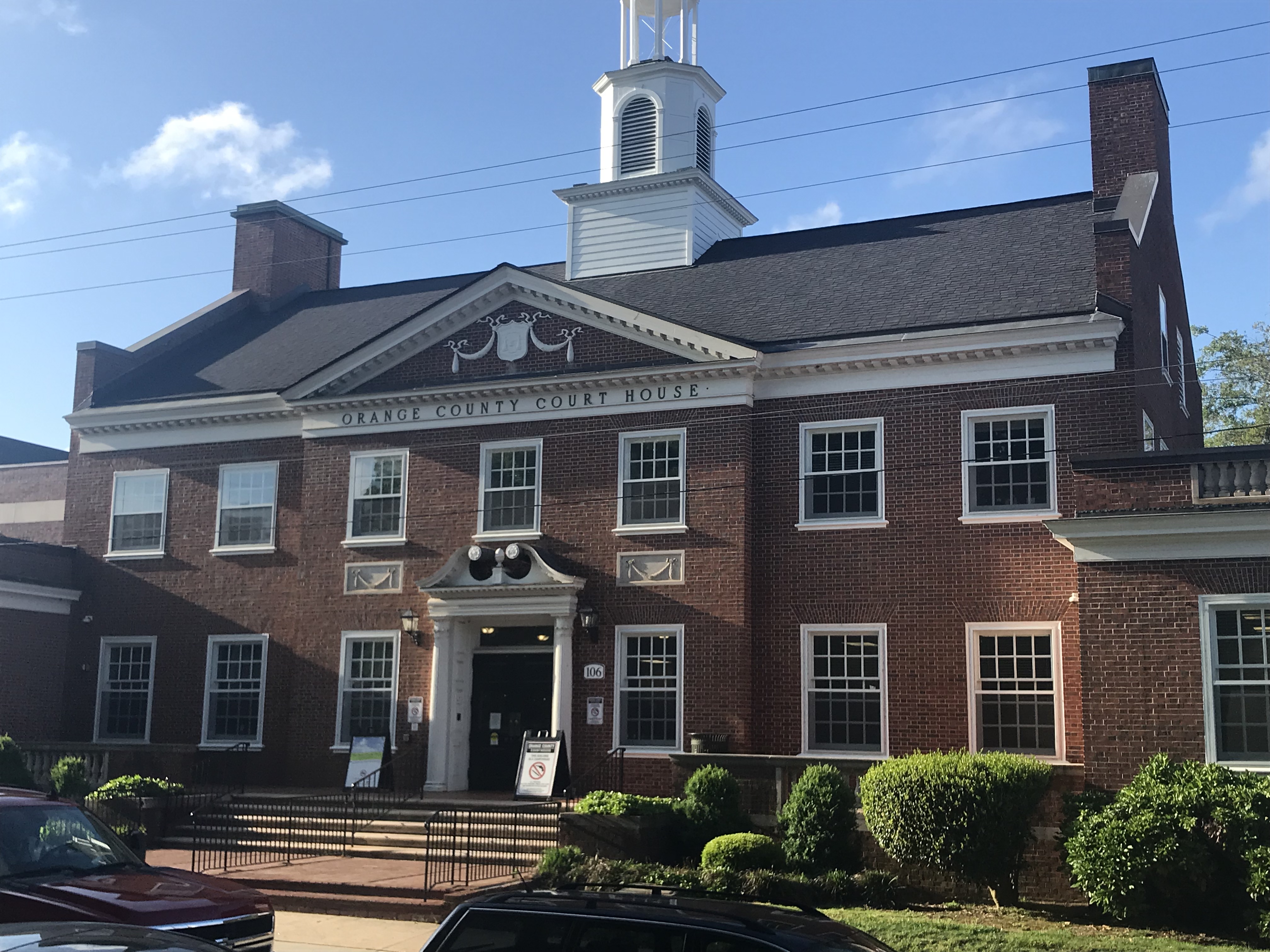
Orange County Judge: UNC Won't Receive All $2.5 Million Back in Overturned Silent Sam SettlementA judge ruled on Wednesday the Sons of Confederate Veterans will not have to give back the entire $2.5 million sum placed in a trust by the University of North Carolina System as part of the settlement over the Confederate monument known as Silent Sam. In February, Orange County superior court judge Allen Baddour changed […]
![]()
UNC Students File Appeal in Case Over Silent Sam SettlementThe Lawyers’ Committee for Civil Rights Under Law filed an appeal on behalf of a group of UNC students and a faculty member to intervene in the settlement between the UNC System and a pro-Confederate group. The organization filed on Tuesday in regards to the denial of its motion to intervene in the deal that […]
![]()
Daily Tar Heel Ownership Files Lawsuit Against UNC, Board of Governors Over Silent Sam DealsThe media group which owns the student newspaper The Daily Tar Heel filed a lawsuit against the University of North Carolina and the UNC System Board of Governors on Wednesday. DTH Media Corporation filed the lawsuit, alleging the settlement between the Board of Governors and the pro-Confederate group the Sons of Confederate Veterans over a […]
![]()
Judge Blocks Civil Rights Lawyers, UNC Students Efforts to Intervene in Silent Sam DealAn Orange County judge will not let students intervene in a settlement that gave a Confederate heritage group money to preserve a monument that protesters tore down at North Carolina’s flagship public university. Judge Allen Baddour ruled that the University of North Carolina students represented by the Lawyers’ Committee for Civil Rights Under Law lacked […]
›

